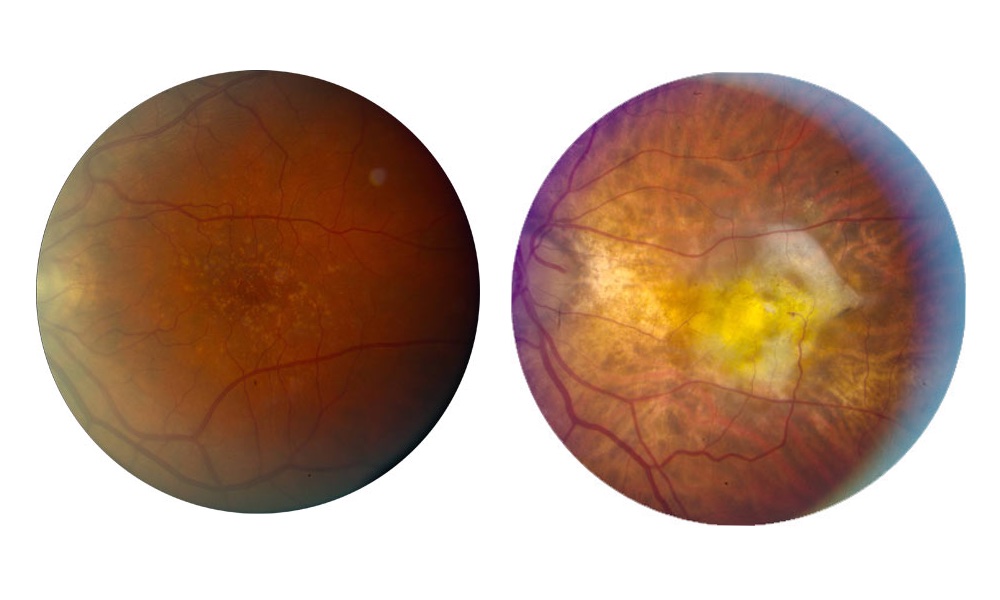Your food choices don’t only affect things like your weight, your heart and your blood sugar level. They impiact everything about your body, including your eyes. A poor diet may triple the risk of developing late-stage age-related macular degeneration (AMD), a new study suggests.
AMD is an irreversible eye disease that occurs when the central portion of the retina deteriorates. The retina is the part of the eye that makes us able to focus and be able to read, drive, recognize faces and colors, and see the fine details in things. There are three stages of age-related AMD, but it’s only in the late stage that vision loss becomes noticeable to a person. A comprehensive eye exam can detect its presence earlier.
Researchers at the University of Buffalo looked at the effect diet had on the development of macular degeneration, tracking the prevalence of early and late stages of AMD over 18 years. The study analyzed information on the self-reported intake of 66 foods collected from participants in the Atherosclerosis Risk in Communities Study.There are three stages of age-related AMD, but it’s only in the late stage that vision loss becomes noticeable to a person.
People who ate the Western diet were three times more likely to develop the late stage of AMD. Diet was not associated with the development of early AMD.
“What we observed in this study was that people who had no AMD or early AMD at the start of our study and reported frequently consuming unhealthy foods were more likely to develop vison-threatening, late stage disease approximately 18 years later,” senior author of the study, Amy Millen, explained in a statement.
Up to this point, most of the research on diet and eye disease has been centered on particular nutrients, specifically antioxidants like vitamins C and E, beta carotene, lutein and zeaxanthin. These do seem to provide a protective effect, but people don’t just eat nutrients, so understanding dietary patterns as it affects eye health is more helpful.If you have early AMD, it would be a good idea to limit the amount of processed meats, fried foods, refined grains and high-fat dairy foods you eat in an effort to preserve your vision.
The study was published in the British Journal of Ophthalmology.





